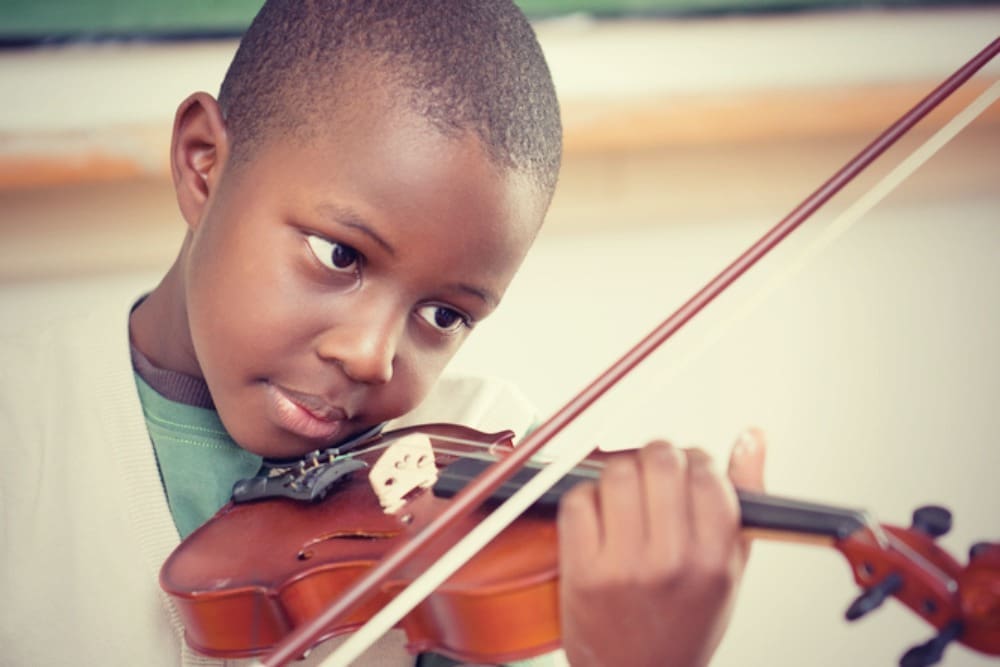Many people have heard of the hotly contested ‘Mozart Effect’. The idea goes that simply exposing children to classical music can transform them into geniuses by the sheer virtue of how clever the music is.
The truth is a little more complicated, but there is some good news. Endless amounts of research in recent years have adding to the already extensive evidence that music can have a profound effect on your child’s brain.
The Positive Effects of Music.
-
Language skills and perception improve.
In 2012 the University of Southern California began a five-year longitudinal study which investigated how music impacted the brain development of children.
What they found was that the areas of the brain which govern several important cognitive and social abilities, namely language and speech processing, matured faster when children were enrolled in music classes after school compared to children involved in non-musical or no after school classes.
In this particular study, the children engaged in seven hours a week of violin practice, both solo and group practice.
Two years into the study, monitoring with MRI, ECG and behavioural tests demonstrated that these areas of the brain had ‘matured’ quicker for these children compared to the control group and the group who played soccer as an after school activity.
Alongside more obvious developments such as increased ability to differentiate between tonal shifts, general sound processing ability, reading, language and speech perception showed improvements.
-
Improved math.
Children with a solid grasp of mathematics are setting themselves up well in the future. Better math skills at an early age are found to correlate with improved academic achievement, even if they do not study a math-focused subject.
Studying music and learning to play an instrument have been found to lead to improved performance in math tests in certain areas with overlapping skills.
-
Better memory and attention.
A comparative study by Northumbria University found that music can improve performance in tasks which require high levels of mental alertness. In particular, they found that of Vivaldi’s Four Seasons, the first movement of Spring showed the biggest increase in performance.
Musical training has also been linked to structural differences in areas of the brain related to memory, and that there are significant differences in long-term memory compared to those without musical training.
-
Improved self-esteem.
Children who are highly engaged with music training are shown to have better self-perception. This may be due to the bonding experience of adults teaching children music and the effect of playing as part of a group with other children.
Children who have received musical training are also shown to have more confidence when learning other new skills and have improved self-esteem.
What we’re seeing is that simply listening to music isn’t enough to change your child’s brain. Active participation and engagement is necessary to experience the biggest benefits. In a sense, this isn’t a surprise. Learning to competently play any musical activity is a complicated process involving dozens of skills and the ability to understand and apply theoretical information, patterns, fine motor control and creativity. All of this adds up to an incredible amount of learning and encouraging the kind of dedication and curiosity that leads to musical talent will also have an impact in other areas of life.
About the Author: Zac Green
Zac Green is chief editor of popular music blog ZingInstruments.com. He believes that music isn’t just a thing you do – it’s a mindset, an attitude, a way of life.


In 2009, our son and his girlfriend had a sweet baby boy. From the moment he came to live with us we wxposed him to classical music on the music channel. I am a true believer of music therapy. This little baby is now 8 and he has excelled in all his academics!! From birth to 5 he listened to classicalmusic.
Excellent,useful for parenting,teaching staff and all such,people connected with music